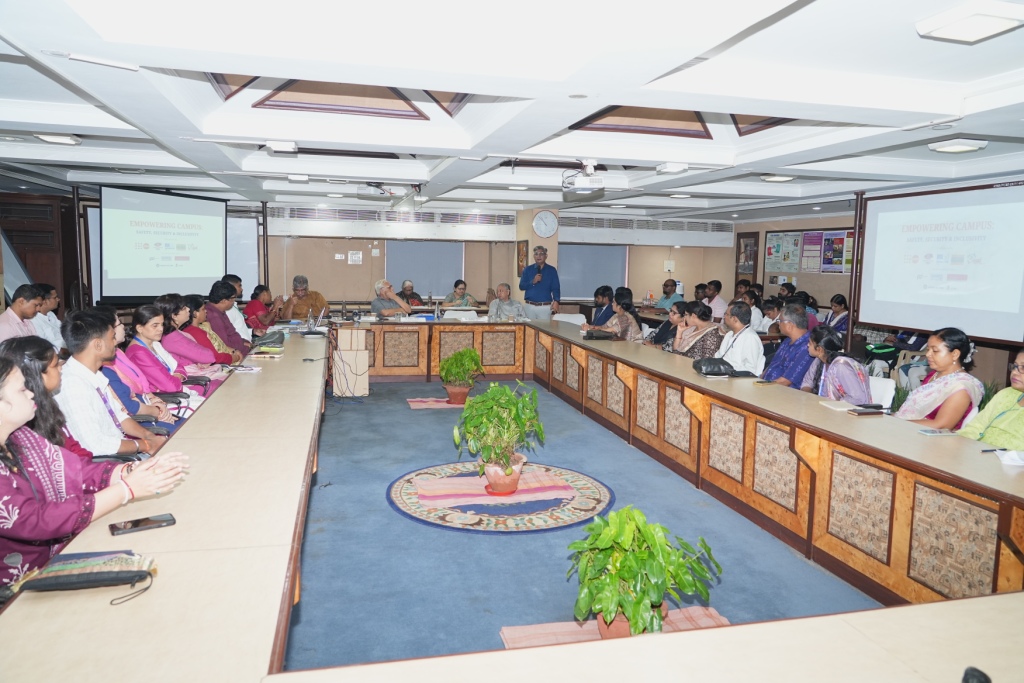ARINDAM GANGULY, OP
Bhubaneswar: Building safe campuses requires not just robust mechanisms, but also collective ownership, ongoing sensitisation, and active engagement from all stakeholders — from students to university leadership and the surrounding community, said Dr Rajesh Tandon, UNESCO Co-Chair on Community-Based Research and Social Responsibility in Higher Education.
While progressive laws are in place, their true impact is realised only when institutions and individuals internalise and act upon them, he emphasised. Dr Tandon was speaking at a sensitisation programme on “Empowering Campus: Safety, Security and Inclusivity”, organised by the Centre for Youth and Social Development (CYSD) in collaboration with the Martha Farrell Foundation (MFF), UNFPA, UNESCO, and PRIA. The event, held Wednesday, also marked the launch of the Nationwide Campaign for Safe Campuses in Higher Educational Institutions — an MFF initiative in partnership with the Association of Indian Universities. The event highlighted the urgent need to ensure students’ physical, emotional, and psychological safety — particularly for women — as Odisha experiences significant social and demographic changes. “With over 2,500 colleges and nearly 12 lakh post-secondary students, half of them women, Odisha has a unique opportunity to lead in building gender-just campuses,” Dr. Tandon said. He stressed that members of the academic community have both a moral and institutional duty to initiate change within their own campuses, then extend those efforts outward to foster a broader culture of collective responsibility.
Jagadananda, mentor and co-founder of CYSD, stressed that building safe and inclusive campuses requires more than awareness — it demands a shared understanding among stakeholders of the structural issues tied to gender justice. Aligning institutional goals with the lived realities of students and faculty, he noted, is key to turning dialogue into meaningful and lasting action. Dr Nadeem Noor, state head of UNFPA Odisha, noted that the concept of safety and security has evolved beyond mere physical protection to include mental, emotional, social, and digital well-being — a shift from its traditional focus on physical threats and law-and-order concerns. The global and national shifts — from demographic changes to technological advances, economic restructuring, and climate impacts — require campuses to adopt an inclusive, future-ready approach to safety, well-being, and gender justice, Dr Noor added.
Rukmani Panda, state head of Breakthrough, stressed the need to integrate gender justice into the curriculum. Pramila Swain, state convener of NAWO, underscored the importance of challenging and transforming deeply entrenched gender norms, while Biraj Patnaik of PCI India highlighted that achieving gender justice requires systemic change. The programme united faculty, students, gender focal points, civil society leaders, experts, and volunteers from 17 universities across the state to pledge collective action for fostering gender-sensitive cultures in higher education institutions.
